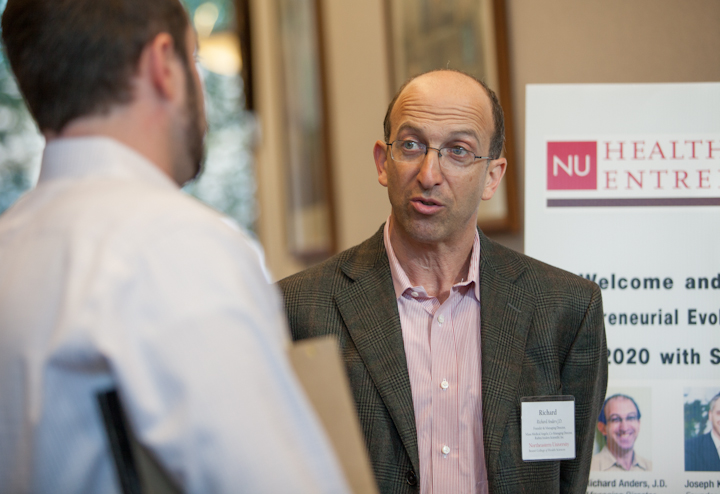For entrepreneurs, health sciences provide challenges, opportunity

Its byzantine regulations and painstaking approval processes make breaking into the health-care field incredibly difficult for entrepreneurs. But for the few with the right mix of motivation, savvy and drive, it can be quite rewarding.
“I talk to entrepreneurs in the life sciences and more than anything, they’re committed,” said Richard Anders, the founder of Massachusetts Medical Angels, a small firm that invests in health-care start-ups. “They say ‘My son has cystic fibrosis’ or ‘My friend has ALS.’ They have a personal connection and, sometimes, they get amazing results.”

Professor Kristin Madison discussed the impact of the Affordable Care Act — and its possible repeal by the Supreme Court — on the broader life sciences market. Photo by Erika Diaz.
[media-credit name=”Erika Diaz” align=”alignleft” width=”350″][/media-credit]Anders spoke on Thursday evening at a panel called “Entrepreneurial Evolution of Healthcare 2000-2020,” which was hosted by the Health Sciences Entrepreneurs, an alumni group dedicated to fostering entrepreneurship in the rapidly evolving world of health care. Anders was joined on the panel by Joseph Kvedar, the founding director of the Partners HealthCare’s Center for Connected Health, and Kristin Madison, a Northeastern professor of law and health sciences.
Anders and Kvedar said the next wave of successful ventures in health sciences would be focused on improving patient care and quality of life while also cutting costs. According to Kvedar, the key to success lies in using technology to monitor patients that would give doctors a chance to intervene before a major problem occurs.
He said another change would lie in using technology to remove barriers between patients and their doctors, nurses or other caregivers.
“You check yourself in at the airport, you pump your own gas, you get your cash out of a machine. All of those used to be jobs done by a person, until technology changed those industries,” Kvedar said. “In health care, you see five different people before you see your doctor. Sixty percent of this field’s costs are personnel and that has got to change.”
Madison, an expert in health-care legislation, said the uncertain fate of President Obama’s signature health-care legislation — The Patient Protection and Affordable Care Act — may pose challenges for entrepreneurs. Many entrepreneurs are unsure how a repeal of either the entire bill or its individual mandate would affect the market.
The elimination of the individual mandate would likely cut demand for health care since fewer people would have access to insurance, Madison said, but some areas, such as the creation and management of digital information systems, would nonetheless continue to thrive.
“One thing to do as entrepreneurs is think about the demands on the health-care field and what kind of opportunities that might create,” Madison said.
Christopher Ford, BA’73, the chairman and co-founder of American Renal Associates, Inc., and a member of the HSE steering committee, co-moderated the event. He urged entrepreneurs to take advantage of the evolving health-care field to find business success that aids society at large.
“Some people might call what we’re going through a revolution, not an evolution,” Ford said. “And those of us who have been around for a long time know that change of this magnitude provides nothing but opportunity for capable entrepreneurs.”





